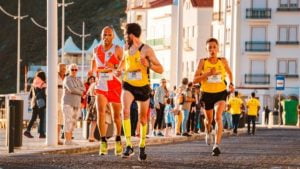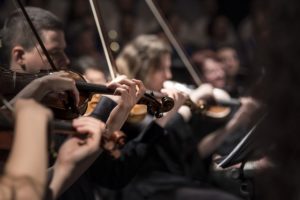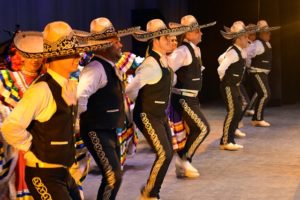 P visas are temporary working visas reserved for athletes, performers, artists and entertainers coming to the United States in order to participate in specific events or activities in their field.
P visas are temporary working visas reserved for athletes, performers, artists and entertainers coming to the United States in order to participate in specific events or activities in their field.
Generally, P visas are granted for the period of time necessary to complete the events or activities listed in the application. Unlike the O visa, P visas have a lower threshold to qualify, but applicants must show they have a permanent residence outside the United States that they intend to return to.
The P visa allows for multiple entries to the United States as long as the visa is still valid. P visa holders may also be able to adjust status to seek permanent residence in the United States.
Moro Legal, LLC, guides and represents athletes, artists, musicians, and entertainers through the P visa application process by obtaining required documentation and evidence, drafting and submitting petitions and required documents, and preparing applicants for visa interviews. To learn more, schedule an attorney consultation online today or contact our office to begin your journey.
There are several categories of P visas, which include:
P-1A visas for Internationally Recognized Athletes
P-1A visas are for athletes and coaches coming to the United States to participate in a specific athletic competition. The P-1A visa is issued for individual athletes and athletes on a team or group of athletes at an internationally recognized level of performance, professional athletes, and athletes and coaches as part of a U.S. team or franchise that is part of a foreign league or association. This visa is also issued for participants in theatrical ice-skating productions.
A “professional athlete” is one coming to the U.S. to work for a team that is part of an association of six or more professional sports teams, whose combined revenues exceed $10 million per year and which governs the conduct of its members and regulate the members’ contests and exhibitions, or any minor league team associated with such an association.
The P-1A visa application must be accompanied by a written consultation letter from the appropriate labor organization, unless no such organization exists. The visa application must also include copies of any written contracts on the terms of the athlete’s employment and an itinerary for any relevant events and activities. Other accompanying documents will depend on the specifics of the case, but may include evidence of prior participation in U.S. major league athletic events, international competitions on a national team, significant awards or other recognition in that sport, or news articles about the athlete’s prior accomplishments.
Essential support personnel, such as coaches, trainers, referees, broadcasters, and interpreters, may qualify for a P-1S visa to accompany a P-1A athlete if they are an integral part of the athlete’s performance and perform support duties that cannot be done by a U.S. worker.
The spouse and unmarried children of a P-1A visa applicant may also apply for P-4 temporary visas to accompany the athlete in the U.S. The P-4 visa does not allow employment, but P-4 visa holders may attend school or college in the United States.
P-1B visas for Members of Internationally Recognized Entertainment Groups
 The P-1B visa category is intended for members of internationally recognized entertainment groups such as bands, orchestras, or circus performers. This category does not include solo performers. P-1B visa applicants must show that at least 75% of the members of the entertainment group have had a “substantial and sustained” relationship with the group for at least one year. (Circus performers and essential circus personnel are exempt from this requirement.)
The P-1B visa category is intended for members of internationally recognized entertainment groups such as bands, orchestras, or circus performers. This category does not include solo performers. P-1B visa applicants must show that at least 75% of the members of the entertainment group have had a “substantial and sustained” relationship with the group for at least one year. (Circus performers and essential circus personnel are exempt from this requirement.)
Petitioners must show evidence that their group is internationally recognized and has achieved substantial achievement in its field, or that their group has been recognized as outstanding in its field nationally for a substantial amount of time. The group, and not its individual members, must have had a solid reputation and acclaim.
Essential support personnel for the group, such as equipment technicians or crew members, may accompany group members on a P-1S visa if the individual is essential to the group’s performance and the support personnel’s work cannot be readily done by a U.S. worker.
The spouse and unmarried children of a P-1B visa applicant may also apply for P-4 temporary visas to accompany the entertainer in the U.S. The P-4 visa does not allow employment, but P-4 visa holders may attend school or college while in the United States.
P-2 visas for Individual Performers or Members of a Group Entering to Perform Under a Reciprocal Exchange Program
P-2 visas are for individuals coming temporarily to the United States to perform as artists or entertainers under a reciprocal exchange program between a U.S. organization and an organization in another country.
A U.S. employer or sponsoring labor organization must file the P-2 visa application on behalf of the beneficiary. The application must include a written consultation letter from the appropriate labor organization, a copy of the reciprocal exchange program agreement, and evidence that the applicant’s skills are comparable to those of the U.S. participants in the program.
The P-2 visa is granted for the time needed to complete the event or events, up to a maximum of one year in duration. The visa may be extended in increments of up to one year.
Essential support personnel, such as stagehands or trainers, may qualify for a P-1S visa to accompany a P-2 artist/entertainer if they are an integral part of the P-2 visa holder’s performance and perform support duties that cannot be done by a U.S. worker.
The spouse and unmarried children of a P-2 visa applicant may also apply for P-4 temporary visas to accompany the P-2 visa holder in the U.S. The P-4 visa does not allow employment, but P-4 visa holders may attend school or college in the United States.
P-3 visas (Artists and Entertainers Part of a Culturally Unique Program)
 P-3 visas are for artists who teach or perform “culturally unique” art forms. Samba dancers, mariachi musicians, or Scottish bagpipe players are examples of artists who may qualify for the P-3 visa.
P-3 visas are for artists who teach or perform “culturally unique” art forms. Samba dancers, mariachi musicians, or Scottish bagpipe players are examples of artists who may qualify for the P-3 visa.
The P-3 visa is granted for up to one year, for the period of time that the artist has employment in the United States, but may be renewed. A U.S.-based organization must file the P-3 visa petition on behalf of the foreign artist with a contract or letter showing the terms of employment or sponsorship. Together with the visa petition, the organization must include information about the artist’s qualifications to perform or teach their particular art form and an itinerary of where the artist will teach or perform. Importantly, P-3 artists and entertainers may not have resided in the United States for one year prior to their arrival in this visa status.
If the artist is outside the U.S., he or she must apply for a visa at a U.S. consulate abroad and may go through a consular interview.
***
Moro Legal, LLC, works with individuals, groups, and employers to assist in all aspects of the P visa petition process. Contact us today to get started.
Note
The content of this website is for general informational purposes only and is not a replacement for legal advice. Immigration law is a complex area of law that is constantly changing and this website cannot cover every facet of the law. Every case is different, and all individuals and businesses should consult with an immigration lawyer prior to filing any petition or application.
